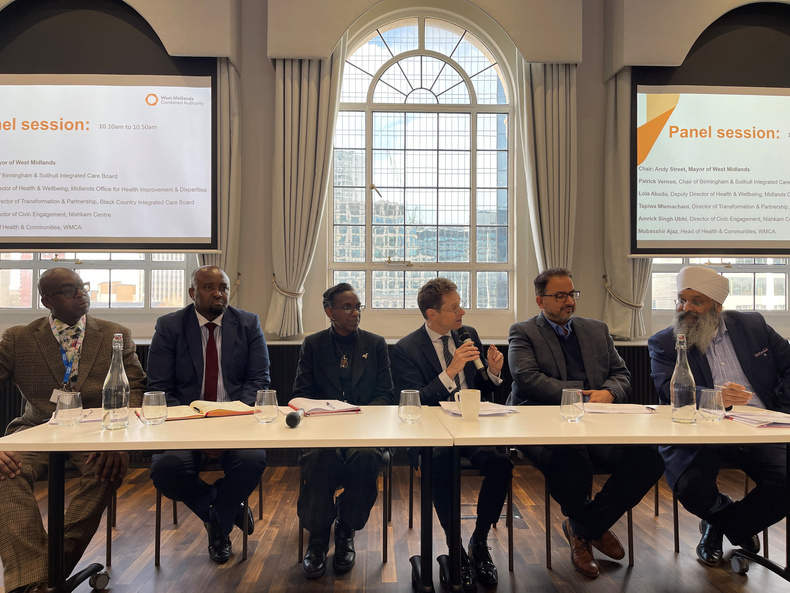Plan to close region 's health gap making steady progress

Actions set out at the height of the Covid pandemic to tackle health inequalities across the region have already helped thousands of people improve their fitness and wellbeing.
A meeting of the Health of the Region Roundtable, chaired by Andy Street, mayor of the West Midlands and chair of the West Midlands Combined Authority (WMCA), has heard how slow but steady progress is being made on delivering a wide-ranging and long-term action plan aimed at closing the region 's health gap.
The Health of the Region: Addressing health and wellbeing inequalities and the impacts of COVID-19 in the West Midlands report was published in 2020 and found there were entrenched health inequalities in the region that had been both exposed and exacerbated by the Covid-19 pandemic.
Among the commitments being delivered on the ground is a long-lasting physical activity and wellbeing legacy for the region developed by the WMCA and the Birmingham 2022 Commonwealth Games (CWG) delivery partners to encourage people to get active in targeted areas of poor health.
This has seen more than 16,000 pieces of Games sports equipment donated to community organisations as well as the setting up of physical and mental health activity groups.
More than 100 organisations gathered in Birmingham this week for the Health of the Region Roundtable, which focussed on the progress being made and what can be done to mitigate the additional impact of the rising cost of living on health outcomes.
The mayor said: “It 's encouraging to see that so much positive work has been done right across the region over the past two years. I 'm delighted to see the substantial efforts our partner organisations have made - in some respects even going beyond what they had committed to in the Health of the Region Report.
“Despite the significant challenges faced by the NHS and wider health sector post-Covid, we 've made real progress. But there is more work to be done collectively as we continue to address the disparities in health and wellbeing that local people sadly experience right across our region. I remain hopeful that - by working together - we can do exactly that. ”
Patrick Vernon, chair for NHS Birmingham and Solihull, said: “The roundtable discussion provided a good opportunity to set out our system-wide vision and plans for tackling health inequalities in the context of the challenges that people in Birmingham and Solihull tell us that they are experiencing day in, day out.
“We have put in place a dedicated strategy which sets out how we can do this collaboratively with our partners. A key part of this looks at how we commission services more effectively, focused on making decisions informed by population data, ensuring we measure impact on advancing equality, adding social value and reducing these inequalities. ”
A full list of the commitments and the progress made is on the WMCA website.
Pictured (L-R): Patrick Vernon, Chair of Birmingham and Solihull Integrated Care Board; Tapiwa Mtemachani, Director of Transformation & Partnership, Black Country Integrated Care Board; Lola Abudu, Deputy Director of Health & Wellbeing, Midlands Office for Health Improvements & Disparities; Andy Street, Mayor of the West Midlands and WMCA chair; Mubasshir Ajaz, Health of Health & Communities, West Midlands Combined Authority; Amrick Singh Ubhi, Director of Civic Engagement, Nishkam Centre, Chair of Core Group and Chair of Faith Strategic Partnership Group.
